JB Russell / Panos / Oxfam
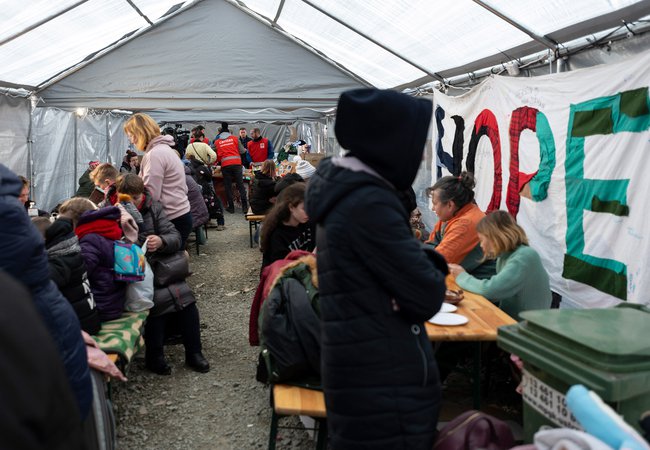
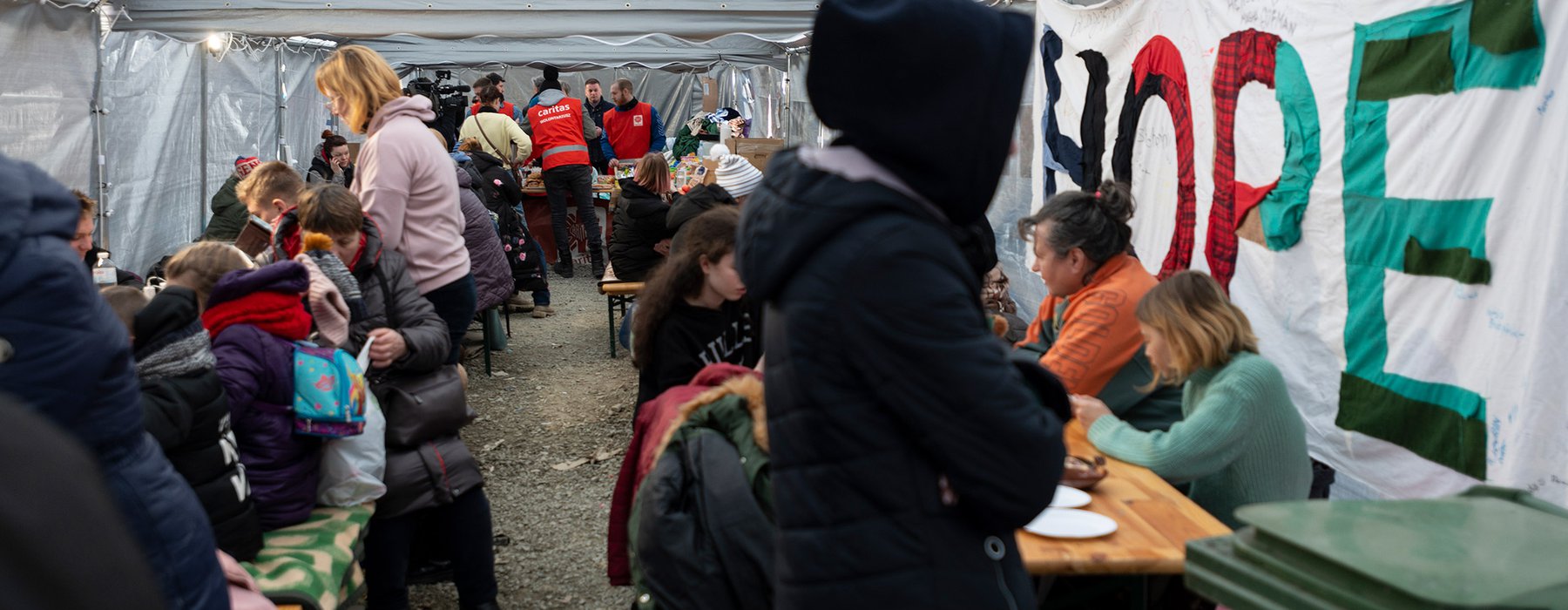
Feeling helpless about a world in crisis? Here are 4 things that can really make a difference.
What can we as ordinary people do to help, in a crisis that feels out of our control? The answers aren’t simple, but we’re not helpless.
“Mummy! Do something!”, shouted my three-year-old yesterday as she saw her younger sister making a break for it out the front door. Her upset at seeing something she knew to be wrong unfolding before her eyes was implicit in her call. She was secure in the belief that there are certain ‘grown-up things’ I could do to stop it.
There is a part of all of us, when we watch the news or scroll through Twitter, that would just love for someone with the right answers to do the right thing. The hope that someone will, in effect, scoop that toddler up and close the door. Hope is important, but hope is the expectation that someone else will surely act. Our government, our democracy, is based on the understanding that we are all the grown-ups with a stake in deciding, together, the right thing to do.
So, as we watch the misery of the crisis in Ukraine and the pain of these refugee families fleeing all they know with little more than they can carry - what should we do? We can help, but how to do it for the best is not simple.
So, here are some of my thoughts. And how you can help, if you agree.
1. Give money
Oxfam is committed to helping people in crisis right now. You can support by giving money, if you can. The Disasters Emergency Committee, a group of organisations with decades of experience in responding to emergencies, is raising funds together.
Some members are already working on the ground in Ukraine and surrounding countries, providing essential support such as water, food, warmth and shelter. Others - like Oxfam - were not already set up in the region. We are planning to work with strong existing organisations to make sure they have the money and support they need, now and in the months ahead when they need it. This is why money is better than donating goods.
A man hugs his daughter and grandaughter after they crossed the border from Ukraine to Medyka in Poland. Image: Michael Kappeler/dpa
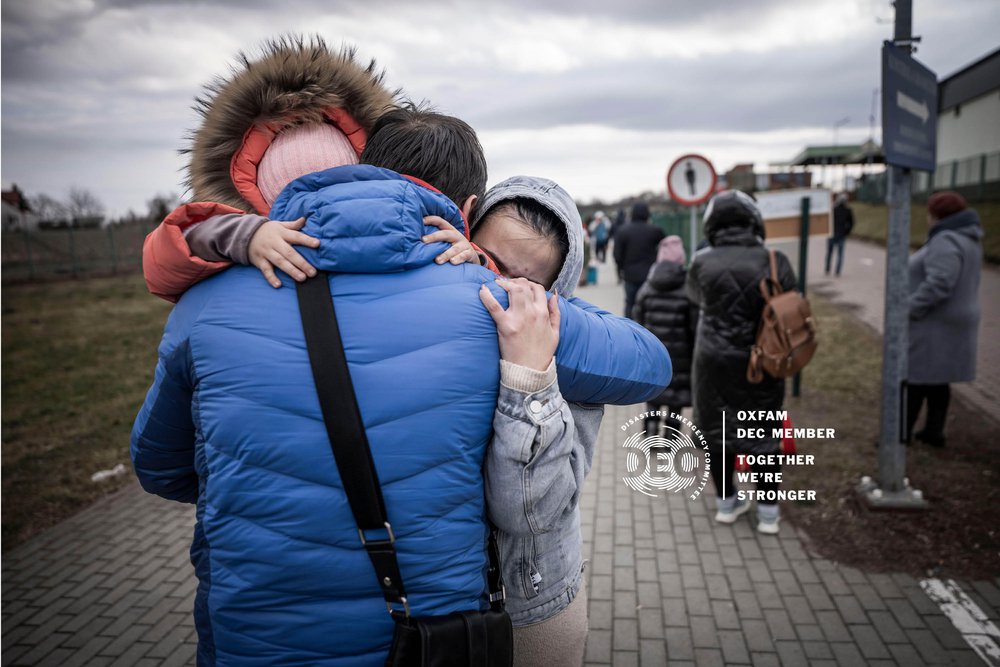
A man hugs his daughter and grandaughter after they crossed the border from Ukraine to Medyka in Poland. Image: Michael Kappeler/dpa
2. Act for all refugees
We can call on our governments to do the right thing for refugees. All EU member states are now obliged to provide minimum protection for all those fleeing Ukraine, including a residency permit for up to three years, access to employment, accommodation, social welfare and education. It’s a landmark directive and a positive one. Now the UK must ensure its own policies and practices are providing quick and flexible routes to safety for people fleeing from Ukraine, without discrimination. And, once refugees arrive here, all levels of government across the UK must work together to ensure they are given the swift and effective support they need.
But here’s where ‘doing the right thing’ becomes more complicated. We cannot and should not ignore the fact that the EU has taken this landmark move for Ukrainians, whilst those fleeing from other parts of the world are held in ‘prison like conditions’ - in Greece for example. This inequality of treatment cannot continue. Nor can we ignore that, for years, the UK Government has resisted the calls of Oxfam and others for more generous family reunion rules. Meanwhile, the rules were changed very quickly in respect to those coming from Ukraine. These decisions are being made differently based on where people come from.
“This is in no way to diminish the suffering of families seeking refuge in Europe right now. But the humanity we see in these people and the compassion we extend to them must also be extended to those from Syria, Afghanistan, Yemen and beyond.”
Katy Chakrabortty, Oxfam GB
This is why Oxfam is asking you to join us in calling on the Home Secretary to do the right thing for all refugees, no matter where they come from, and particularly to reverse current policy around the Nationality and Borders Bill.
This piece of legislation, which is currently going through Parliament, is an attack on the fundamental principles of refugee protection. The solidarity shown to refugees from Ukraine must be embedded in a UK system based on legal obligations, human rights and dignity.
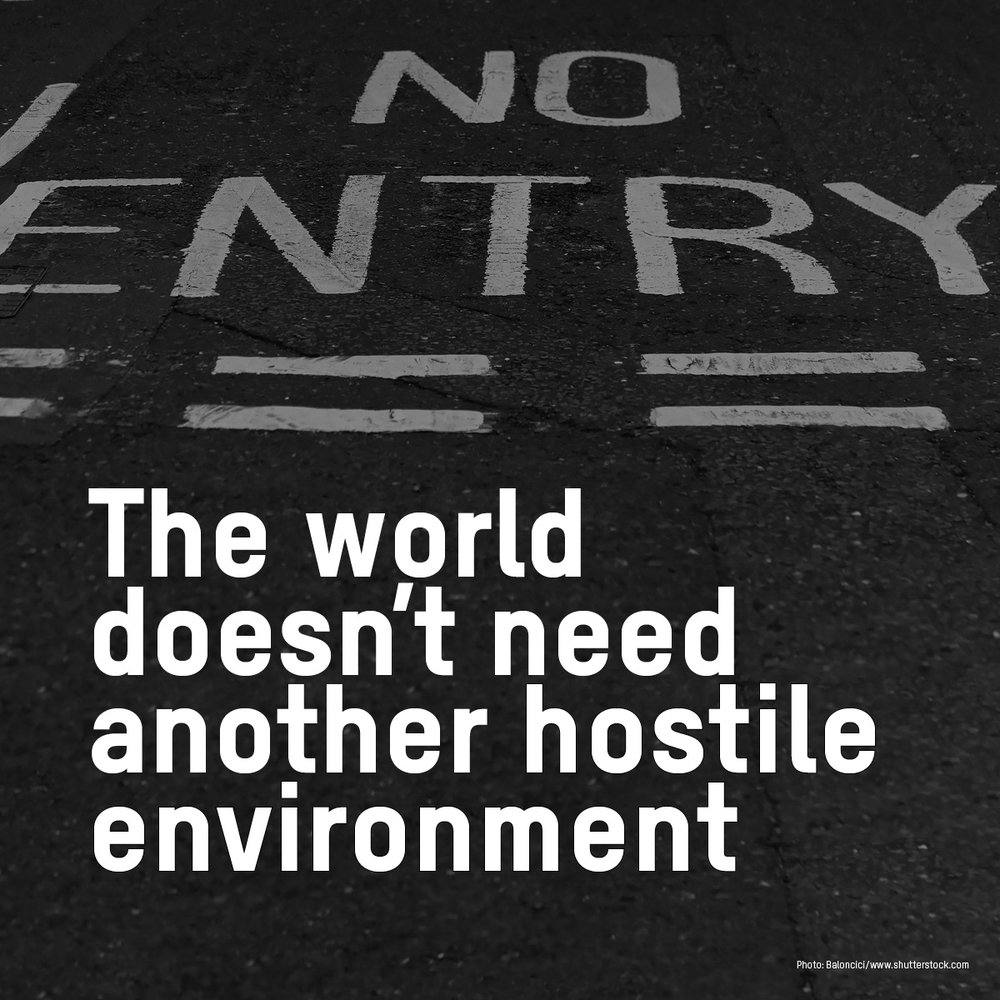
3. Help keep focus on ‘forgotten crises’ that are facing disaster
There is still more to be done if we are to act responsibly in the world. We have a humanitarian system that is grossly underfunded, and global public attention is a powerful decider of who gets helped and who doesn’t.
The TV cameras have moved on, but millions of people in Afghanistan are facing acute food insecurity. Around 21 million people across the Horn, East and Central Africa are reeling from the effects of drought, flooding, conflict, plagues of locusts and failed rains. The risk of a widespread famine is impacting millions.
“The desperate situation in Ukraine is not only overshadowing these and other humanitarian crises, it is directly making them worse.”
Katy Chakrabortty, Oxfam GB
The Black Sea region is one of the world’s main grain exporters. It has a combined output of 25% of global wheat supply, as well as corn, fertiliser and oil. The hikes in commodity prices we are now seeing is driving food inflation, and making pre-existing food crises even worse.
We are determined to shine a light on other crises around the world, to push for action from governments and UN agencies, and to help communities and organisations on the ground who are working tirelessly to respond.
This is not another appeal for your money. Not yet, anyway. But we can all do more to raise awareness of the world’s forgotten crises. Use social media, use your networks, contact your MP. Hope, yes. But act too. We must not choose to look away.
Amina, a farmer in Ethiopia. Pablo Tosco / Oxfam Intermón
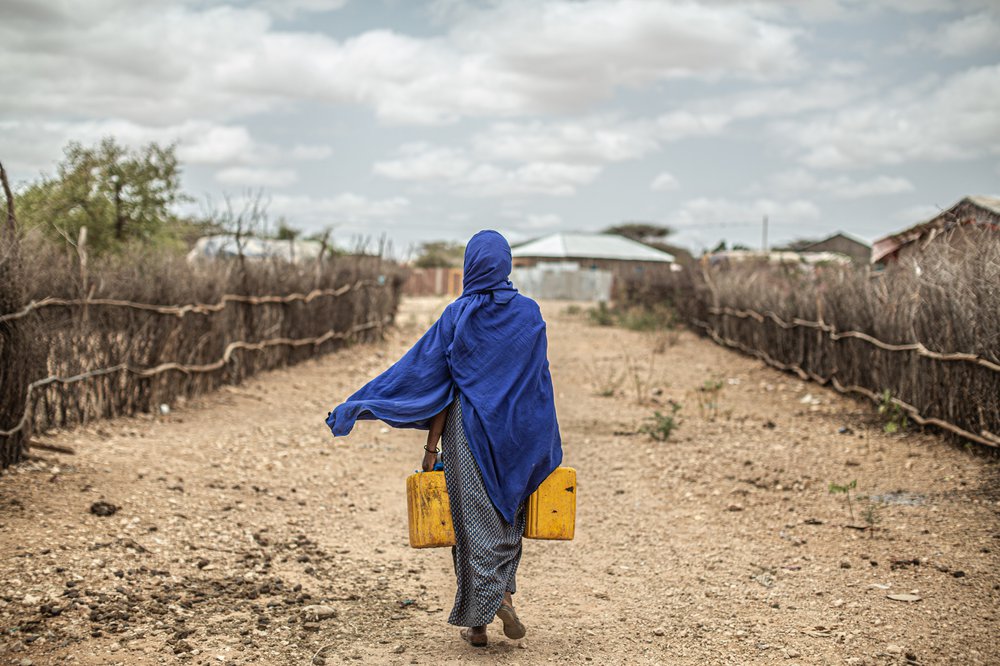
Amina, a farmer in Ethiopia. Pablo Tosco / Oxfam Intermón
4. Don’t take your eyes off the long game
As we’ve already learned with the Covid-19 pandemic, this decade won’t afford us the gift of getting to tackle one crisis at a time. We have to use the threats and opportunities of one to push for greater action on another.
Blink and you would have missed the latest report from the UN’s climate change body, the IPCC.
“The findings of scientists from around the world demonstrate clearly that the effects of climate change are not taking a break whilst we look the other way – whether at Covid-19, Ukraine, or elsewhere.”
Katy Chakrabortty, Oxfam GB
And those who are opposed to climate action, will use the impacts of the Ukraine crisis on energy markets to pursue their own goals.
Now is not the time to question commitments to net zero. We need to emphasise more than ever that reducing our dependence on fossil fuels is the only viable long-term solution is for the UK – and the rest of the world. We need to move as quickly as possible to energy efficiency and a rapid growth of renewables.
You can write to your MP on climate with Oxfam, and make sure the UK government lives up to its commitments on climate change.
So, while we rightly respond to the horrific situation people are facing in Ukraine, we need to work hard to ensure that people everywhere suffering as a result of conflict, Covid-19 or climate change are not forgotten.
Oh, and keep an eye on toddlers as you are doing all this - they are faster than you realise.
Andy Aitchison / Oxfam
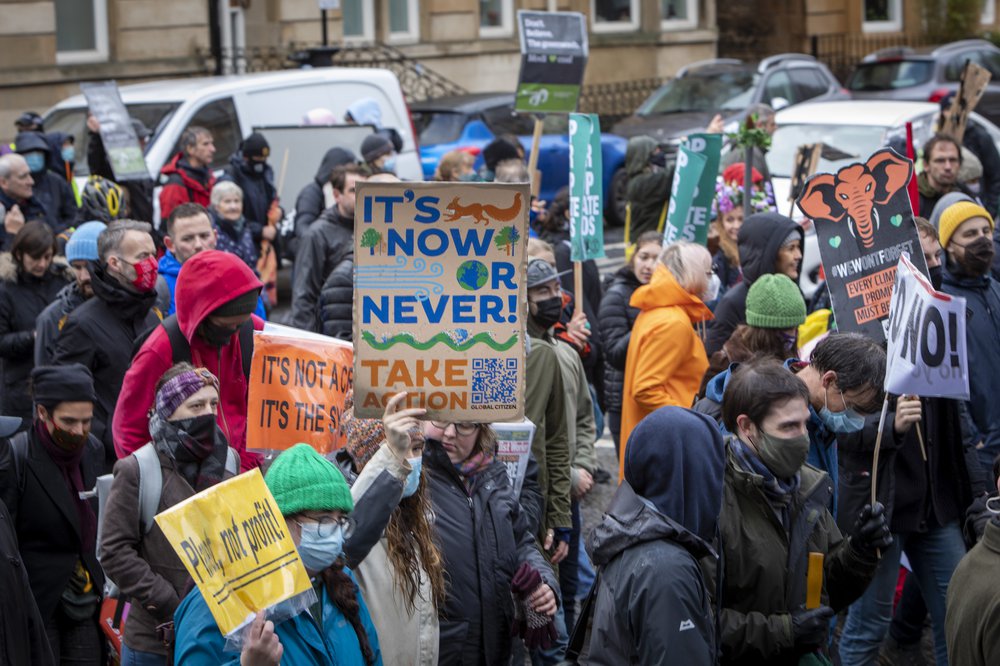
Climate marchers at COP26. Image: Andy Aitchison / Oxfam
More posts like this
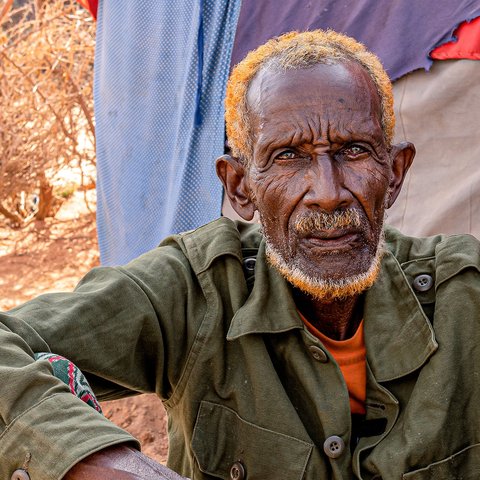
Millions of people in East Africa are facing extreme hunger – many on the brink of famine. This tragedy can be averted if we act now.
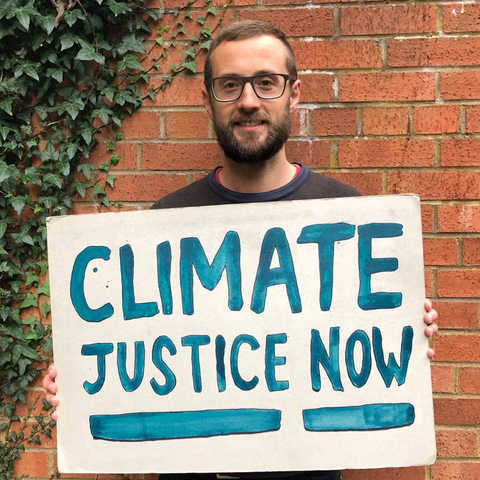
26 Sep 2022
How can we help climate change stop hitting those who have done the least to cause it first and worst? And what can we do to stop climate change?
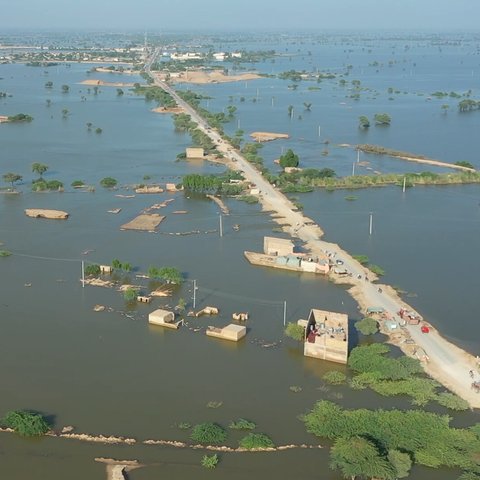
11 Jan 2023
Climate change results in more intense rainfall, which increases the chances of flooding.
